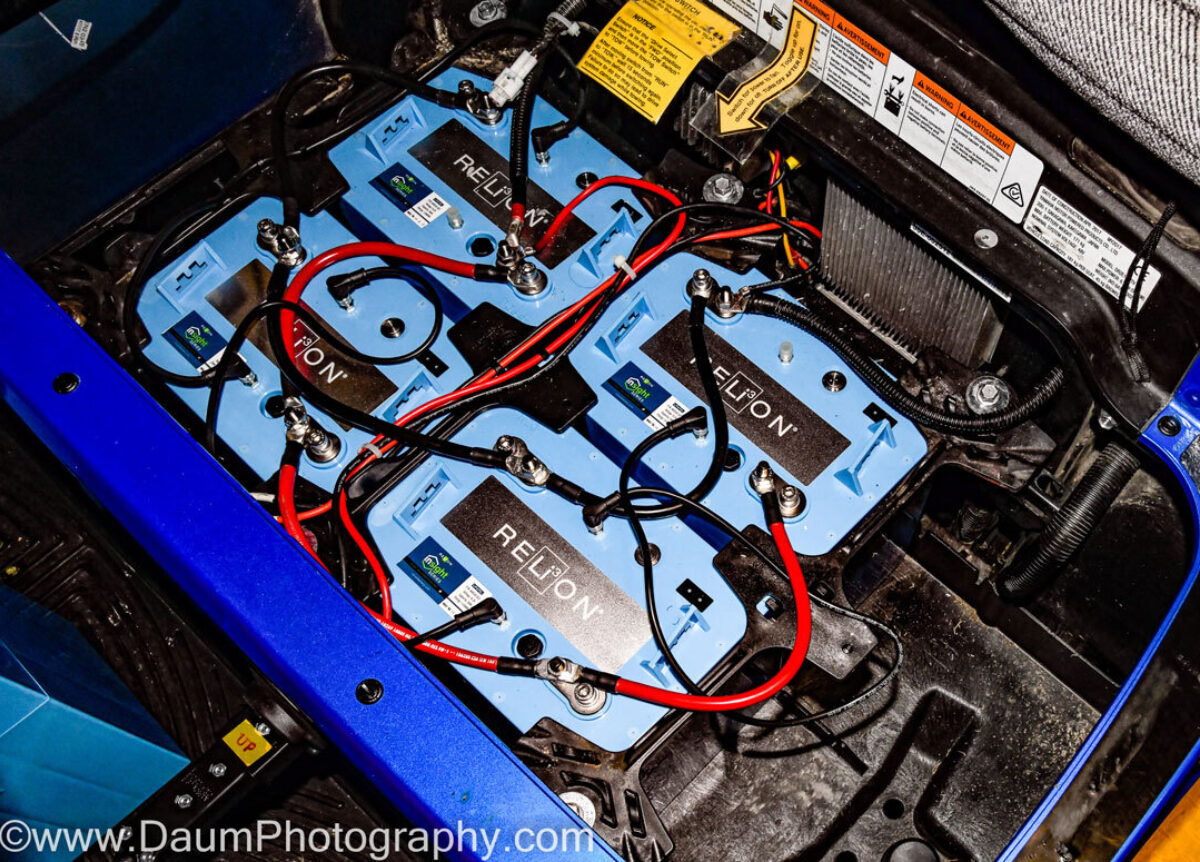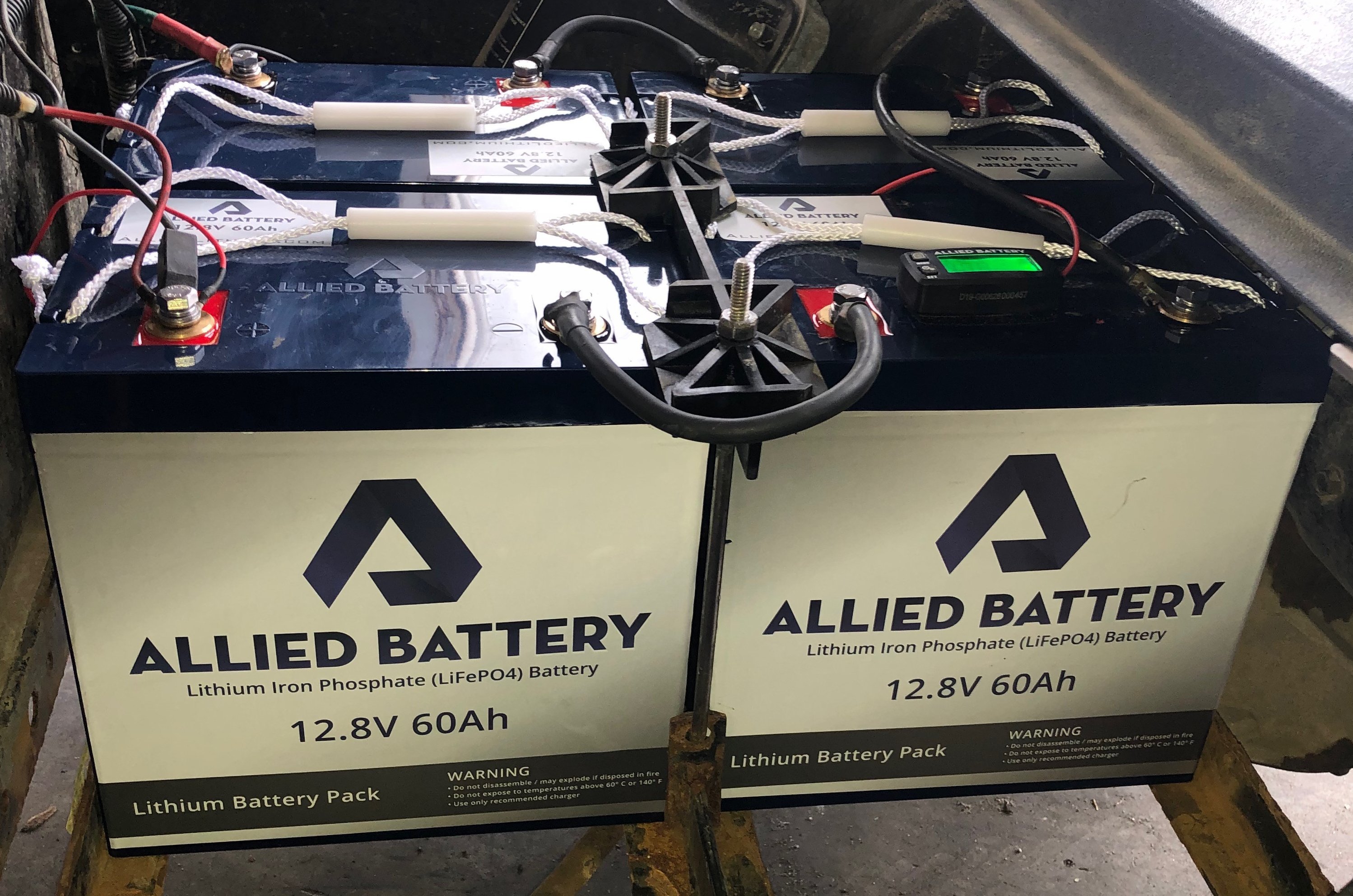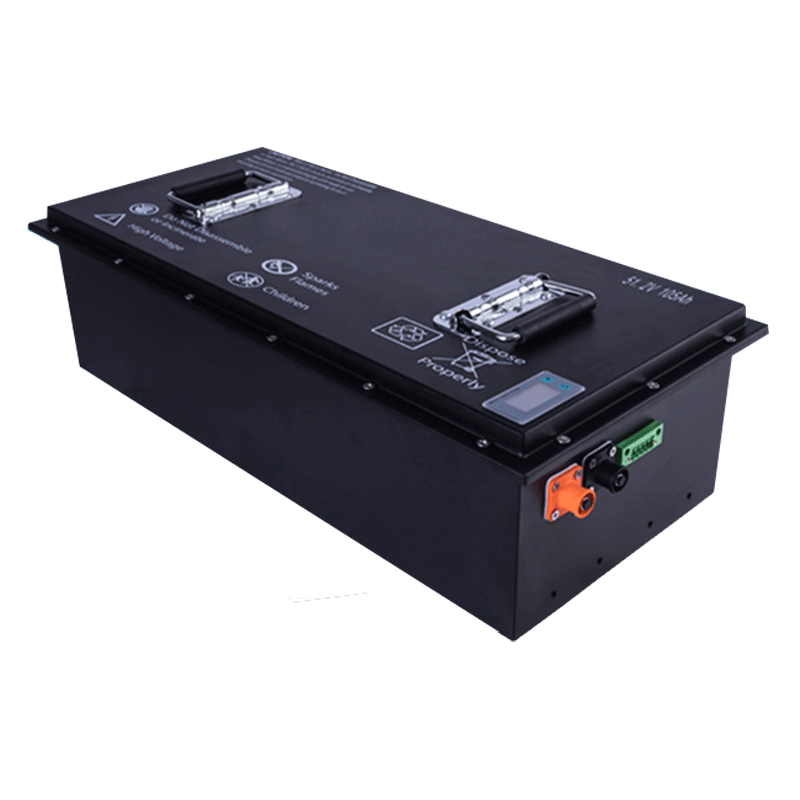Lithium batteries for golf carts offer high efficiency and long life. They provide a lightweight power solution compared to traditional lead-acid batteries.
Lithium batteries are revolutionizing the golf cart industry with superior performance and durability. Golf carts powered by lithium batteries benefit from faster charging times and require less maintenance, making them a smart choice for golfers and course operators.
The switch to lithium batteries enhances the driving experience and contributes to environmental sustainability. With a deep cycle that withstands numerous charges, these batteries ensure a reliable ride across the greens. Lithium batteries are becoming the go-to option for those seeking to upgrade their golf cart’s power system for better range and efficiency as technology advances.

Lithium Batteries for Golf Carts
Lithium batteries for golf carts offer numerous advantages over traditional lead-acid batteries. They are lighter, which improves the cart’s overall performance and energy efficiency. Lithium batteries also charge faster and have a longer lifespan, reducing the frequency and cost of replacements. Additionally, they provide consistent power output, ensuring the golf cart operates at optimal performance from start to finish. Maintenance is minimal compared to lead-acid batteries, which do not require watering or equalization charges. While the initial investment is higher, the long-term benefits and lower maintenance needs make lithium batteries a cost-effective and environmentally friendly choice for golf cart enthusiasts.
Introduction To Lithium Batteries In Golf
Golf carts are evolving. The quest for more efficient, reliable, and eco-friendly power sources in golf carts has led to a significant technological shift. Lithium batteries are at the forefront of this transition, offering a suite of benefits that far surpass traditional lead-acid batteries.
The Shift From Traditional To Modern Power
Golf carts have long relied on lead-acid batteries, but lithium batteries are now taking the lead. Their lightweight nature and longevity make them a top choice for golf enthusiasts and course managers.
Advantages Of Lithium Batteries
- Faster charging times save valuable hours.
- A longer life span reduces frequent replacements.
- Consistent power delivery enhances performance.
- Reduced weight improves cart efficiency.
- They are eco-friendly, with less waste produced.

Credit: relionbattery.com
Comparative Analysis: Lithium vs. lead-acid
Choosing the right battery for a golf cart is crucial. In this ‘Comparative Analysis: Lithium vs Lead-Acid,’ let’s explore the best battery type. We will examine key factors like performance, lifespan, maintenance, and environmental impact.
Performance Metrics
Lithium batteries are known for their high performance. They deliver consistent power and can handle high loads with ease. Their lightweight nature also means better efficiency and speed for the golf cart.
In contrast, lead-acid batteries tend to lose voltage as they discharge. This results in reduced performance over time. They are heavier, which can slow down the cart.
Lifespan And Maintenance
Lithium batteries boast a longer lifespan. They can last up to 2,000 charge cycles.
- Less maintenance: No need for water top-ups.
- Stable performance: They maintain power throughout their life.
Lead-acid batteries typically offer around 500-1,000 cycles.
- Regular maintenance: Water levels need checking.
- Declining performance: They weaken over time.
Environmental Impact
Lithium batteries have a smaller carbon footprint. They are more eco-friendly and more accessible to recycle.
Lead-acid batteries use hazardous materials. These should be disposed of appropriately to avoid harming the environment.
Critical Features Of Lithium Batteries
Lithium batteries have revolutionized the way we power our golf carts. Durable, efficient, and lightweight, these batteries offer a range of benefits that traditional lead-acid batteries can’t match. Let’s explore the key features that make lithium batteries superior for powering your golf cart.
Energy Density Explained
The energy density of a battery measures how much power it can store relative to its size. Lithium batteries boast a high energy density, which packs more power into a smaller, lighter package. This makes your golf cart more straightforward to maneuver and reduces the overall weight, improving efficiency.
- Lightweight for enhanced performance
- Compact size allows for more space
- Increases cart speed and range
Fast Charging Capabilities
Lithium batteries charge at an impressive speed. Golfers can expect a full charge in just a few hours, minimizing downtime and keeping the game going. Unlike other batteries, lithium units maintain consistent performance throughout their charge cycle, ensuring a steady power supply when needed most.
| Charge Time | Performance |
|---|---|
| Reduced significantly | Consistent power delivery |
| Quick turnaround | Long-lasting reliability |

Credit: www.golfcarttiresupply.com
Installation Process
Upgrading your golf cart with a lithium battery is a smart move. This Installation Process guide will help you get started smoothly and safely.
Selecting The Right Battery For Your Cart
Choosing the correct lithium battery is crucial for optimal performance. Consider these points:
- Compatibility: Ensure the battery fits your golf cart model.
- Voltage Requirements: Match the battery voltage with your cart’s specifications.
- Capacity: Higher capacity means longer rides between charges.
Step-by-step Installation Guide
Follow these simple steps to install your new battery:
- Turn Off Power: Ensure the cart is off and the keys are removed.
- Remove Old Battery: Disconnect and safely remove the existing battery.
- Check Connections: Clean all cables and check for wear.
- Install New Battery: Place the lithium battery and connect the terminals.
- Secure Battery: Fasten it to prevent movement during rides.
- Test the Cart: Turn on the power and test drive your cart.
Cost-benefit Analysis
Choosing the correct battery for a golf cart can be tricky. It all comes down to striking a balance between price and output. Lithium batteries are famous for their efficiency and longevity. Let’s dive into a cost-benefit analysis to see if they’re worth the investment.
Initial Investment Vs. Long-term Savings
Lithium batteries’ initial cost is greater than conventional lead-acid batteries. But don’t let this put you off. Their long lifespan means fewer replacements over time. In the long term, this saves money.
- A longer life cycle reduces the need for frequent battery purchases.
- Lower maintenance cuts down on upkeep costs.
- Greater efficiency leads to energy savings.
These factors make lithium batteries an intelligent choice for long-term savings.
Resale Value Considerations
Golf carts with lithium batteries often fetch a higher resale value. This is because buyers know they won’t have to replace the battery soon, which is a big plus.
| Battery Type | Cost | Resale Value |
|---|---|---|
| Lithium | Higher | Increases |
| Lead-Acid | Lower | Decreases |
A golf cart with a lithium battery is a good investment for the future.
Safety And Maintenance Protocols
Golf carts are a course staple worldwide, and lithium batteries have become popular power sources. These batteries are efficient and long-lasting. Yet, they need proper care. Below are vital protocols to keep your cart running smoothly and safely.
Routine Checks And Balancing
Regular maintenance is vital for lithium batteries. Perform checks often to ensure a safe ride. Look for signs of damage, like cracks or leaks. Test each battery’s voltage to confirm they are balanced. This prevents overworking any single battery. Use a multimeter for accurate readings. Keep connections clean and tight to avoid power loss.
- Inspect visually for external damage.
- Test voltage for balance
- Clean and secure connections
Best Practices For Storage
Proper storage extends battery life. Keep golf carts in a cool, dry place. High temperatures can harm lithium batteries. Charge the battery fully before storing. This avoids deep discharge cycles that can damage them.
| Do | Don’t |
|---|---|
| Store in a relaxed, dry environment | Expose to extreme temperatures |
| Charge before storage | Store with a low charge |
Follow manufacturer guidelines for charging and storage. Disconnect the battery if you plan not to use the cart for a while. Check the charge level every month. Maintain a stable charge to keep the battery in top condition.
- Follow the manufacturer’s instructions.
- Disconnect the battery during long breaks.
- Check charge monthly
Real-world Applications
Exploring the real-world applications of lithium batteries in golf carts reveals their impact. Golf courses and players testify to the efficiency and benefits.
Case Studies Of Golf Courses
Golf courses globally are adopting lithium batteries for their carts. Here are key examples:
- Green Valley Golf Club: Switched to lithium batteries in 2021. They noticed a 50% reduction in energy costs.
- Sunny Hills Resort: Improved cart performance and maintenance ease after switching in 2020.
These cases show lithium batteries’ cost-effectiveness and performance enhancement.
Player Experiences And Testimonials
Players share their experiences with lithium-powered carts:
- John Doe: “The cart charges more quickly and runs longer.” It’s a game-changer.”
- Jane Smith: “I love the smooth ride and quick acceleration.”
Such testimonials underline the user satisfaction and reliability of lithium batteries in golf carts.

Credit: www.ecolithiumbattery.com
Future Trends In Golf Cart Batteries
The evolution of golf cart batteries has reached an exciting juncture. With lithium batteries leading the charge, the future promises even more efficient, powerful, and environmentally friendly options. Explore the upcoming trends that are set to redefine the way we power our rides on the green.
Technological Innovations On The Horizon
Lithium batteries for golf carts are about to get even better. Scientists and engineers work tirelessly to enhance their performance and longevity. Let’s peek at what’s brewing in the labs:
- Solid-state batteries: Safer and more stable than liquid-based cells.
- Advanced BMS: Battery Management Systems optimize usage and extend life.
- Fast-charging tech: Minutes to charge, not hours.
- Increased energy density: More power in lighter, smaller packages.
Predicting The Next Big Thing
What’s the future of golf cart batteries? Look at the trends that are shaping tomorrow:
| Trend | Impact |
|---|---|
| Green Energy Solutions | Reduced carbon footprint, sustainable power sources. |
| AI Integration | Smart carts that adapt to usage and conditions. |
| Wireless Charging | Convenience and cable-free power-up. |
| Recycling Programs | It is better for the planet and cost-effective for users. |

Frequently Asked Questions
How Much Does a Golf Cart Lithium Battery Conversion Cost?
Converting a golf cart to a lithium battery typically costs between $500 to $2,000, depending on battery capacity and brand.
Can I Replace Golf Cart Batteries With Lithium?
Yes, you can replace golf cart batteries with lithium options, ensuring they match your cart’s voltage and power requirements. Always consult a professional for proper installation.
How Many Lithium Batteries Do I Need For A 48v Golf Cart?
You’ll typically need four 12V lithium batteries to power a 48V golf cart effectively.
What Lithium Battery Is Best For A Golf Cart?
The best lithium battery for a golf cart is typically a LiFePO4 type, known for its long life, safety, and efficiency.
Conclusion
Lithium batteries are a top choice for powering golf carts. They offer long life, quick charging, and consistent performance. Investing in lithium technology can enhance your golfing experience, ensuring reliability and efficiency on the course. Consider upgrading to lithium for a superior ride.

